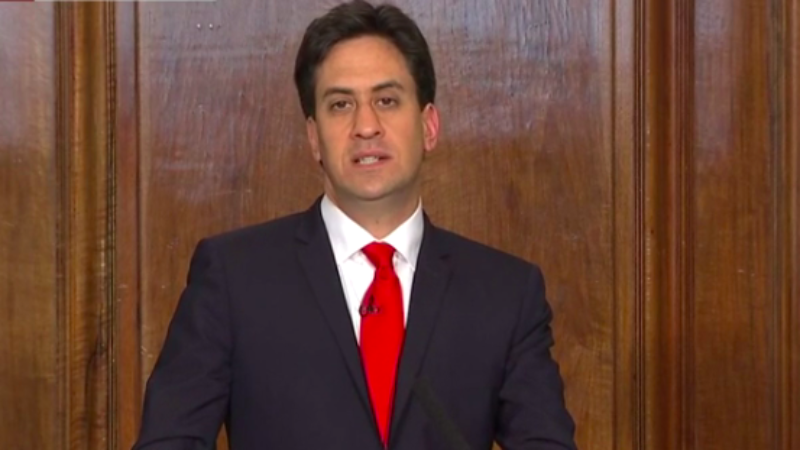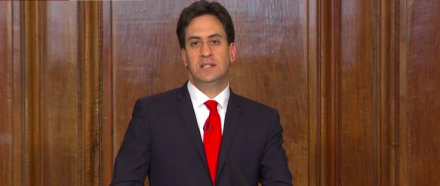
Over the last couple of weeks I have been writing about the leadership race – how each candidate could potentially win and if they do what they should do then. This will be hardest piece in the series for me. Some of the mistakes I am going to write about were made by people I like and respect. People I consider friends and who I hope will still think of me the same way tomorrow.

But mistakes were made, and we need to be honest both about what they were and what we should learn from them. My passion is for organisation and communication so that’s where my focus will be. Whoever is elected to run the Party they will have differing views on policy, but there are concrete things that I think we need to learn from the last five years that will apply to Burnham, Cooper, Corbyn and Kendall alike.
1. Get a grip
Grip – in politics is a thing that you don’t miss until it doesn’t exist. And then you miss it dreadfully. Or if you don’t the people you deal with really, really do.
There is a certain amount to be said for creative chaos. But it only takes you so far and only works so well. Someone has to be in charge. As leader you will ultimately responsible for everything that happens. But you also need a team of no more than three people who can speak for you with absolute authority on designated areas such as message, party organisation and policy.
Ed’s team seemed to often lack a sense of focus and grip. Decisions were often made slowly and too collectively with no one taking ownership of them. As such it was often difficult to know who to speak to, whether decisions taken on Monday would still hold by Friday and whose job the implementation of those decisions was.
You need a core, small unit that has this authority and is not afraid to exercise it. Of course they should be able to challenge and be challenged. But only within the limits of an understood and effective decision making process.
2. Mix up your people
Different people have different skills. However good you are, there will be someone better than you at some things. There will also be others with perspectives that differ greatly from you own. These voices are vital.
It is a huge failing not just in Ed’s leadership, but in the political world in general that we tend to surround ourselves with people who think and act like us. Ed’s team were great individally, but they were too alike as a collective. This didn’t stop them disagreeing but it did mean that they did so within a set of defined parameters and paradigms that did not reflect the reality of the Party and the country. Confirmation bias is all too easy a trap to fall into when you surround yourself with people who not only agree with your essential aims but also think like you too.
Get in some people with whom you have little in common. Have people at the heart of your team who aren’t policy wonks but are great organisers, great communicators, great fundraisers. Hear perspectives from every part of the movement not as an exercise in uniting the Party but as an essential tool for providing a leadership that can speak to and understand a broad range of experiences.
3. Go where the public are
Ed’s leadership attempted to do two things at once and as a result neither were particularly successful. There was an attempt to shift the political narrative in a more socially democratic direction while at the same time change the way politics is presented to the public as a more serious and worthy endeavour.
I think this confused the public while also allowing our opponents to set the narrative about Ed and about the Party too often. I argued at the time that Ed’s new approach to leadership was more natural to him, but I now think that we should not have stayed in that comfort zone. If you are going to try to sell a different policy offer, you need to do so in a more comfortable and comforting way. Soft media was almost completely ignored until the short campaign by which time it was far too late. Fewer lectures and more time spent on the “nation’s sofa” of Good Morning or Jonathan Ross might have given Ed an earlier, better chance of connecting with the country. We don’t convince with press releases and we don’t convince in seminars.
So get out there. However uncomfortable you are with doing it. You will improve over time anyway. Visibility is essential and you must keep reinforcing not just your political but your human side too.
4. Listen to feedback from the doorstep
This is incredibly hard. Because we know that a lot of the feedback was not kind to Ed. The people we talked to on the doorstep were telling us their concerns about him and they were hard to hear for us, never mind for the team of dedicated friends and for Ed himself.
But if we had listened earlier, perhaps we could have addressed some of the issues earlier. Changed tack and tried to connect in different ways as the ones we had weren’t working.
Would it have made a difference? I don’t know. But ultimately it cannot have made things worse. People seemed quite surprised at Ed’s relatively decent performance during most of the short campaign (though the Question Time event was probably the lowest moment). We should not be surprising people at that point but reinforcing what we have learned to be by listening to them earlier.
Have a way of listening to, disecting and understanding the messages that are being given on the doorsteps. Have a calm and measured response, but make sure you do respond. Your brand can be changed, but only if you understand that you have one in the first place and that – sadly – you don’t get to be final arbiter in how it is delivered. You can only do that in negotiation with the public.
5. You need outriders
Ed Miliband was right to stand up to the Murdoch press and Labour were right to back Leveson. However, in doing so they made their relationships with the press considerably more difficult. But then they refused to help themselves by cultivating properly and working with key journalists who could have gone a long way in mending relationships between Labour and the press.
When you read certain journalists you know they have been well briefed, well in advance about policies the Tories are thinking about. Labour used to do this too and do it well. But we dropped this almost – it seemed – as a matter of policy. At times they seemed to go actively out of their way to antagonise even their more friendly press. I remember several people being nonplussed when Ed attacked the New Statesman at PMQs. I can see no gain in doing so (the public won’t thank him for it) and it put him on the wrong side of people who he should have been courting.
The same is true in other areas too. Relations with key supportive business people were allowed to flounder. Donors who gave huge sums to the Party were not even sent Christmas cards. Yes these are small things. But when your talk is of relational capitalism, you need to be able to do the relational bit. You need to have those relations in place so you can have these people fired up to support your agenda.
Make sure that your allies are kept close. Treat them well. Understand their needs and what they want from your reciprocal relationship – not just what they can do for you. While you want them to be your outriders, then can only do so if this is not their only or primary function, So help them do their jobs well before you ask for their help doing yours.
This is not the whole story either of what went wrong (and I won’t be carving this list in stone, I can tell you that much) nor of other things that did go right. But there are some key lessons about how the leadership relates to the people in their orbit that I think are important to learn from. Whoever leads the Party next would do well to talk to Ed’s team about what they thought went wrong. But they should also talk to those who found they couldn’t help. To those who found themselves so frustrated they gave up or those who suffered on in silence.
Politics is a harsh place to learn lessons. The spotlight is brutal and constant. But learn we must. I hope this is the start of a longer period of self examination. It is for me and it must be for our Party.




More from LabourList
Letters to the Editor – week ending 15th February 2026
‘Labour council candidates – it’s tough, but all is not lost’
‘Labour won’t stop the far right by changing leaders — only by proving what the left can deliver’